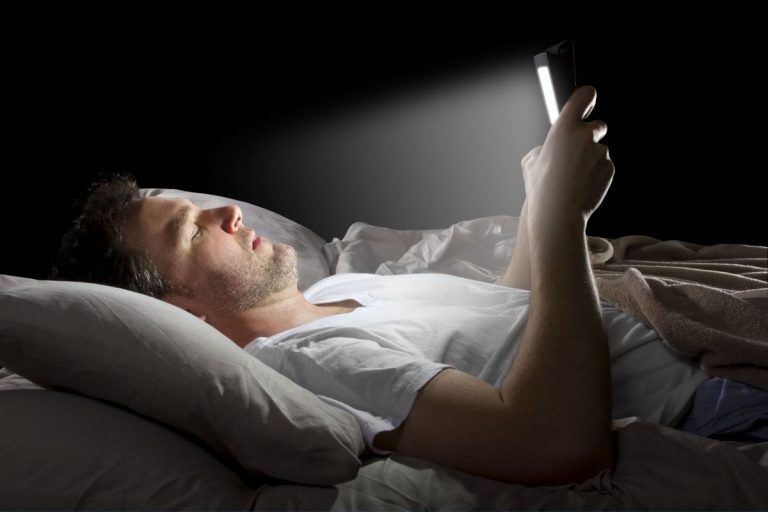Whether fasting or going for long hours without eating before bed, many people tend to go to bed on an empty stomach in the last few years (1). Some do it for their health, others to lose weight, or based on their spiritual beliefs. Whichever is the cause, sleeping hungry can be part of the daily routine, and it is good to know more about the consequences.
While it is easier to stay distracted from food during the day when hungry, it is more challenging at night, especially for those who used to have slow evenings. Therefore, you might need to keep the mind busy or find ways to drive the body to sleep. The secret stand is distracting your thoughts from the hunger as much as possible.
In this piece, we will break down the main perks of sleeping hungry and some tips and tricks on doing this effortlessly and effectively. Keep in mind that each body response is different; therefore, it is mandatory to understand your metabolism’s “schedule” and how to regulate the feeding patterns.
Now, let’s start discussing the main sections of this conversation.
Tips To Easily Fall Asleep With An Empty Stomach
If eating before bed is not an option for you anymore, or you want to adopt this habit from now on, you need to know this might take some more work. Here are some of my little secrets and handy tips for sleeping while still hungry.
1. Meditation
It might sound unexpected, but hunger meditation is a thing. This particular meditation is meant to defeat the feelings of hunger and thirst. To achieve this state of mind and body, you need to focus on the Kantha Kupa, which is basically the throat’s pit. Now, all you need to do is concentrate on this part of your throat while focusing and say these words: “throat hunger thirst overcome.”
If you have some struggles with pronouncing the words or focusing on the meditation steps, there are plenty of videos to guide you. This type of meditation is going to guide you to suppress the feeling of hunger when you want to go to sleep.
However, if you want to simplify the meditation process, you can try a more straightforward method and just take a deep breath to relax into sleep. Follow these steps:
- Lay yourself down in bed and find a comfortable position.
- Breathe profoundly through the abdomen and repeat a word or a phrase to yourself. You can make it either loudly or in your head. Use words like “sleep“, “relax“, “breathe” etc.
- While you focus on the breathing part and release the air accordingly from the abdomen, try repeating this phrase: “release tension.”
2. Drink Enough Fluids
You might want to quit food before going to bed for good, or at least try to decrease the amount of it. However, you can try drinking fluids to give yourself the sensation of a full stomach without eating. These liquids will substitute food for a short period; nevertheless, the beverages you drink cannot replace food for long periods, so it should not be a permanent solution whenever you are hungry. Sometimes, you need to eat.
One of the best things to do is to drink as much water as possible. Alternatively, if you feel like enough water, try drinking some herbal tea. For instance, green tea is relatively light and a healthy alternative that can satisfy your hunger without needing to make yourself a full meal. Other inspired types of teas include chamomile, which has the perfect relaxing and calming effect before going to sleep.
On the other hand, if you feel like your hunger has to do more with low blood sugar, try giving yourself a sugar boost. You can add sugar or lemon to your tea to boost energy. If tea is not your thing, you can replace it with a nice cup of cold or warm milk cup. Warmer milk is ideal for promoting sleepiness, and depending on the type of milk you buy, a full glass may contain the perfect amount of sugar to please your cravings and hunger.
Also Read:
3. Listen to a calming podcast or favorite series.
The secret here is to be distracted. Sleeping on an empty stomach may cause you to turn and toss, principally because you remember how hungry you are and what delicious meals you could eat.
Instead of persistently ruminating thoughts about favorite foods, try watching or listening to something you enjoy that can distract you. For instance, a relaxing podcast, maybe an interactive TV show, can keep your mind focused and stop having hungry thoughts. This type of distraction should also help get you to sleep, as, luckily, the eyelids will become heavy after a while. Just make sure you will avoid any type of culinary program.
Also Read: How Long Before Bed Should I Turn off Electronics?
4. Read some book pages.
If you think that listening to a podcast or watching a TV show is too heavy and energy-consuming, you can try reading a book you like. This would be a lighter distraction and a sleeping trigger to some of you.
So, I suggest picking a light book, maybe a magazine article, or a blog post. One of these options may help you get to sleep sooner than expected and distract your mind from hunger.
Some find reading the best way to enhance their creativity, others choose books as the ideal relaxing habit or getting away from daily routine. Whatever works for you. Because this is the perfect opportunity to mix the reading hobby with a new sleeping regime.
5. Eat dinner 2 or 3 hours before going to bed.
One of the possible reasons you are hungry before bedtime is because you ate your last meal too early that day.
Let’s say that you have eaten at 5 pm and go to bedtime at 11 pm. You will probably feel hungry as soon as you put hit the pillow. So try adjusting your eating patterns based on your sleeping schedule. Calculate the times you go to sleep every night, then eat the last meal 2 or 3 hours before bed. This way, you can be sure that you are fully satisfied during the night, and you won’t constantly wake up with a grumbling stomach.
6. Go for short walks
Walking is beneficial, not only for banishing all the negative thoughts but also for getting ready for bed. Yes, you read it right. The simple act of walking can also expel all the excess energy and, lastly, make you feel sleepy once you hit the mattress.
Simply go for a stroll, somewhere close to home or in a nearby park, enjoy the fresh air, and release all the possible tension. Concentrate on both physical and mental aspects. Walking before going to bed is an excellent distraction from an empty stomach. However, make sure you go for a walk in a safe environment.
Also Read: Should You Do Pushups Before Bed?
The Benefits Of An Empty Stomach During Sleeping
Many people would skip breakfast and prefer to eat the whole fridge for dinner. While it is easy to go in the kitchen and have a quick snack at midnight, you should think about it twice and measure the consequences.
Multiple studies claim that avoiding food and caffeine (2) before sleep is beneficial for sleep quality. Caffeine is known for increasing neuron firing rates in the brain’s system, which keeps our body in a fully awake state.
On the other hand, the body needs to fully digest food before completely shutting down at the end of the day. If this does not happen properly, one can lack quality sleep and wake up with a blotted stomach. So unpleasant! The following are the possible adverse effects of going to sleep with a full stomach:
- Heartburn
- Insomnia
- Indigestion
- Restlessness
- Bloating
On the other hand, once having a light and empty stomach, you may contribute to better sleep and, in return, wake up a lot more refreshed and rested. Studies have been demonstrating that fasting comes with lots of benefits (3), such as:
- Weight control
- Improving sensitivity to insulin
- Better immune factors
- Lower LDL cholesterol levels
- Better sleep cycles
- Improved natural hormones
Is it healthy going to bed hungry?
Some go to bed with an empty stomach by default because they feel better doing so, whether they are following a nutritional plan or not. Generally speaking, people prefer not eating before sleep to meet nutrition requirements daily or follow a healthy weight loss plan.
Nevertheless, in many cases, a healthy eating program may result in feeling hungry right before going to sleep. But before we go on and check the possible side effects, let’s discuss the possible reasons you may go to bed with the “empty stomach” feeling:
1. You have been following a healthy meal schedule.
One of the likely reasons people go hungry to bed is their eating plan based on three meals a day and tiny snacks. So, as previously mentioned, depending on when you go to bed, eating a well-rounded diet that consists of a dinner way before going to bed could result in feeling a bit hungry.
2. Cutting back daily calories
A possible reason for feeling hungry when hitting the pillow is intentionally cutting back calories to lose some weight. Make sure you have an equilibrium in your diet, even if you follow a very restrictive diet, like vegan or keto. An intermittent fasting diet allows you to make your eating plan. If you can’t sleep with an empty stomach, you may consider fasting during the first hours in the morning instead.
3. Not getting enough sleep.
As odd as it sounds, you may also feel starving because you are not getting enough sleep. Overtiredness can trigger this hormone called ghrelin, which spikes food cravings and the constant presence of hunger.
Another hormone responsible for feeling hungry is leptin, also triggered by the lack of sleep. Therefore, you may start craving food although you have just finished dinner. Consequently, making sure you get a good night’s sleep is mandatory to control the hunger sensation better.
4. Malnutrition or undernutrition
Going to bed with the hunger sensation may also signify a severe condition known as malnutrition (4). Experiencing a constant hunger when going to bed can clearly indicate the lack of nutrition and an issue entirely.
Undernutrition is derived from the malnutrition issue and is defined as consuming less than 1,800 calories a day, as well as lacking the proper assimilation of minerals, vitamins, and critical components for a well-balanced diet. Prolonging undernutrition may lead to slowed growth in children and other issues in children and adults.
Possible Side Effects Of Going To Bed Hungry
Going to bed feeling hungry may activate some frustrating feelings, such as emptiness or dissatisfaction due to an empty stomach. Yet, it may be healthier to go to bed hungry than eat just before you jump to bed.
However, some may encounter side effects linked to not eating before bedtime. For instance, some might deal with weight gain and a higher body mass index (5).
Others may experience broken sleep and indigestion if they eat very close to bedtime. The metabolism slows down as the body gets ready to sleep. Thus, it doesn’t need additional calories.
In A Nutshell
It is perfectly understandable that falling asleep hungry is a true nightmare for some people. But I believe that repetition is the mother of teaching, so once you get used to this eating schedule, your mind won’t need any more late snacks.
As you now know, there are more advantages of going to sleep hungry than having a generous meal right before you hit the pillow. Just make sure you keep the mind distracted from the body’s food needs, and it will be easier to fall asleep.
Otherwise, if you are new to intermittent fasting, visit a physician first and learn everything about the best practices to sleep when hungry. If the mind is still thinking about your cravings, remember the benefits of sleeping with a light stomach.





